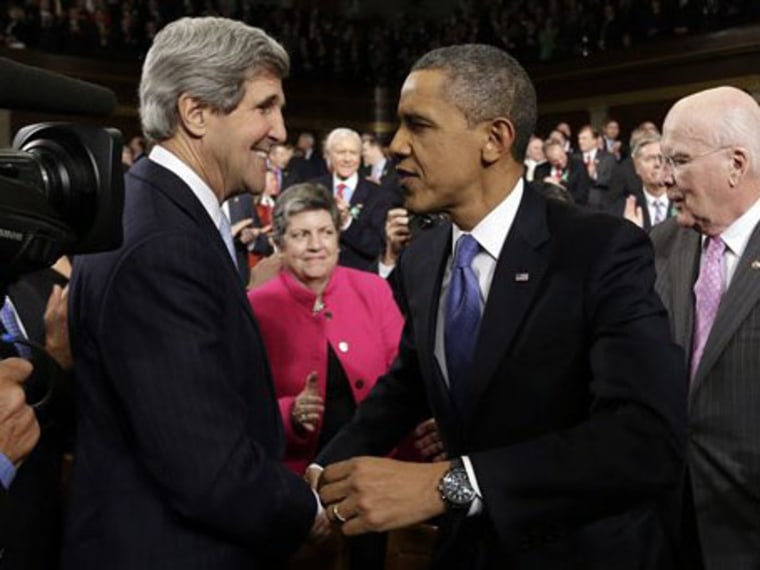Several years ago, when Republicans threatened to use the debt ceiling to crash the American economy on purpose, the New York Times' David Brooks argued that Republicans were no longer "a normal party," in part because they "do not accept the legitimacy of scholars and intellectual authorities." Even if "impartial experts" give GOP lawmakers credible guidance, "members of this movement refuse to believe it."
Four years later, scholars and intellectual authorities have taken an interest in the international nuclear agreement with Iran, and they tend to support the White House's position. The Washington Post published this piece late yesterday:
Three dozen retired generals and admirals Tuesday released an open letter supporting the Iran nuclear deal and urging Congress to do the same. Calling the agreement "the most effective means currently available to prevent Iran from obtaining nuclear weapons," the letter said that gaining international support for military action against Iran, should that ever become necessary, "would only be possible if we have first given the diplomatic path a chance."
The signatories include "retired general and flag officers from every branch of service," including four four-star generals.
Of particular interest, the retired military leaders explained yesterday, "If at some point it becomes necessary to consider military action against Iran, gathering sufficient international support for such an effort would only be possible if we have first given the diplomatic path a chance. We must exhaust diplomatic options before moving to military ones." It's an under-appreciated point.
Their letter came on the heels of a similar endorsement of the Iran deal from 29 of the nation's top scientists -- including "Nobel laureates, veteran makers of nuclear arms and former White House science advisers."
And that letter followed an endorsement of the agreement from dozens of former national security officials from previous U.S. administrations.
And that letter followed an endorsement of the deal from more than 100 former American ambassadors from previous U.S. administrations.
To be sure, experts aren't always correct. But is it unreasonable to think the growing consensus among experts should count for something?
As policymakers weigh their options, and consider whether or not to kill the deal, embarrass the United States, and derail American foreign policy, shouldn't they at least consider the collective judgment of retired military leaders, nuclear experts, national security officials, and former ambassadors?
